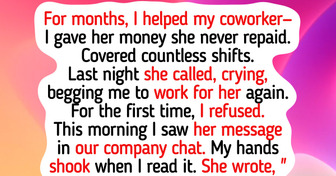Yup, your the A-hole
My Stepson Said I’m Not His Real Dad, So I Taught Him a Lesson He Won’t Forget
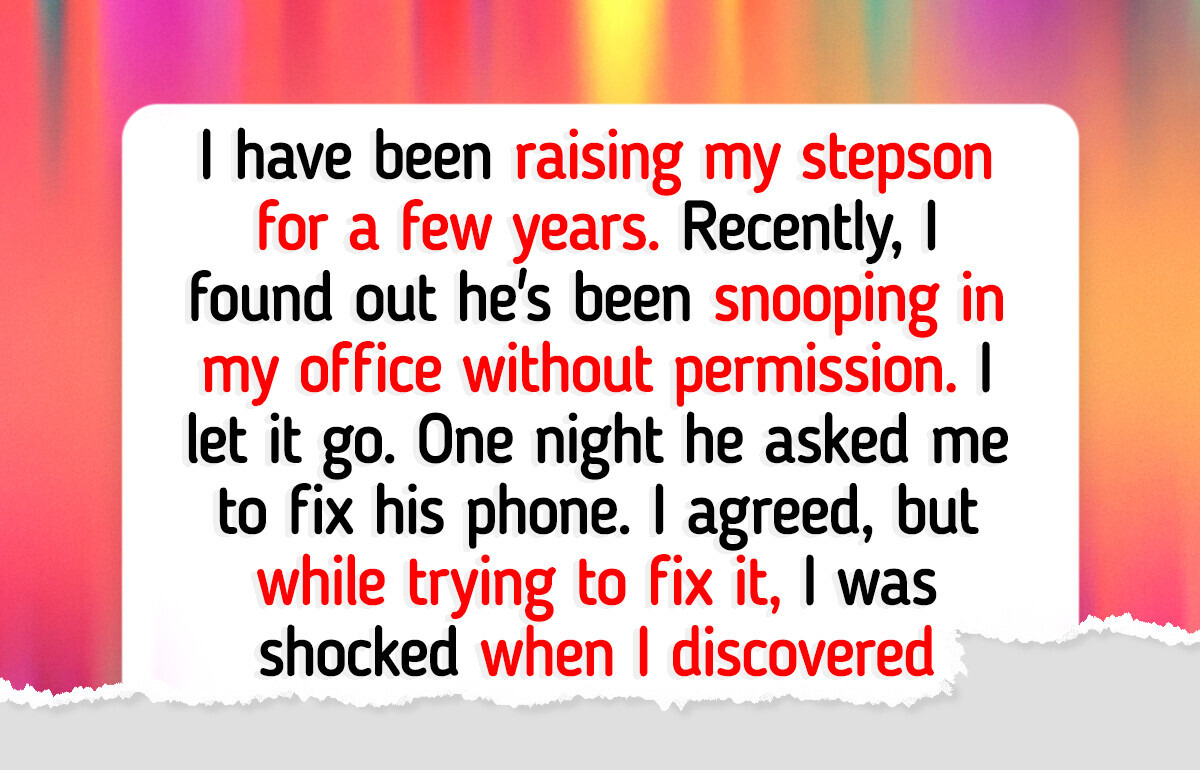
Becoming a stepparent is a choice rooted in love. We marry someone knowing that their child will become part of our everyday life and a part of our family. We want to support them, guide them, and be someone they can trust. But what happens when that child refuses to accept you and starts crossing boundaries?
That’s exactly what happened to one of our readers. He reached out to us to ask if how he responded made him the bad guy, or simply someone who had reached his limit. Let us know your verdict.
Here’s his story:
I’ve been raising my stepson, Jason, for a few years now. He’s 16, with all the typical traits of a teenager — distant, sarcastic, and hard to read. I tried not to take it personally.
After all, I came into his life later. I knew he’d need time. But recently, something changed. I started noticing small things that didn’t sit right.
His behavior was more than normal teenage rebellion.
I began to notice that important papers in my office were shuffled around. My personal laptop, which I always kept closed, was left open. I double-checked.
This wasn’t forgetfulness. Someone had been going through my things. I didn’t want to believe it was Jason. But it wasn’t my wife, and there really wasn’t anyone else at home.
He denied it and I somehow became the bad guy.
When I confronted him, he denied everything. Worse, he spun it around like I was the one overstepping. And then my wife — his mom — said something that made me feel completely alone.
“He’s just going through a rough time. You need to be more patient.”
I dropped it. I didn’t want to fight. I told myself it wasn’t worth the drama. But deep down, I felt like I was being gaslit in my own home.
The truth comes out in an unexpected way.
One night, Jason came to me holding his phone. He’d dropped it in water and broke it and lied about how it happened. Still, I agreed to help. I’d bought the phone for him, after all.
While I was checking it for damage, a message popped up from one of his friends. It said: “Can’t believe you actually stole money from him, lol.”
I confronted him but he didn’t even seem guilty.

I was furious that he had broken my trust and taken advantage of me. I showed him the message and asked him what it meant. He laughed.
Then he looked me straight in the eye and said, “You’re not my real dad. Why do you even care?”
I had finally had enough.
I told him I was done. Done cleaning up after him, done helping him when he lied, mocked me, and showed zero remorse.
He didn’t apologize. He didn’t even flinch. He just walked away, like none of it mattered. But I wasn’t going to let it slide, at least not anymore.
I sent his mom the evidence.
Later that night, while he was sleeping, I went into his room. I took his phone, reopened the conversation, and took a screenshot of the message about stealing from me.
Then I sent it to my wife. All I said was: “I hope you finally see what he’s been hiding from you.”
My stepson finally faced the consequences of his actions.

She was furious. She showed Jason the screenshot. He didn’t even try to deny it this time. He just stood there, silently.
She grounded him, and he ended up missing his best friend’s birthday party — the one he’d been talking about for weeks. Since then, he hasn’t spoken to me once. Not a word.
He glares. He avoids me.
And I keep wondering: was I wrong?
He had it coming, but I feel guilty.
There’s a thin line between holding someone accountable and getting even. Part of me still feels guilty.
Another part of me — the one who’s tried for years to build trust with a kid who keeps tearing it down — feels like I finally did what I had to do. I didn’t do it to hurt him. I did it, so the truth would stop hiding in the shadows.
Here’s our advice:
- Sixteen is old enough to know right from wrong: The teenage years are not easy, but they’re also crucial for helping young adults understand there are consequences of their actions. Sixteen is old enough to know that stealing is wrong, and it’s a parent (or stepparent)’s job to help guide their teen to find their moral compass.
- Discipling teenagers makes them accountable adults: When teenagers are held to clear rules and expected to own their mistakes, they start to connect their actions with real consequences. Over time, this helps them grow into people who think before they act, not just for themselves, but for how their choices affect everyone around them.
- Being a stepparent can be challenging: You’re expected to love, guide, and protect someone who might not see you as family. It takes patience, thick skin, and a heart big enough to keep trying, even when you’re met with silence or resistance.
- Real change starts with real conversations. Talking to your stepchild isn’t just about rules — it’s about creating space for them to be heard. When you listen without judgment and make them feel safe to open up, even the most distant teen can start to feel seen. Trust doesn’t happen overnight, but honest, empathetic communication is how it begins.
Blended families come with their own set of struggles. Here’s another story about how one stepparent had to lay down the truth when his stepchildren refused to accept him.
Comments
I think I would want to know what he's spent that money on as well. Was it drugs. Who is this friend that knows about it? Does this teenager bring any friends home with him regularly? What are those friends like around the parents and what's going on with the son's after school home time?
Quit giving him spending money and buying things for him. Tell him to either get a job or do chores to earn money. And then stick to it.
I'm not entirely sure I even understand the kids response. How does you not being his real father mean you shouldn't care that he stole from you? You can't steal from a complete stranger without it being an issue. Not being somebody's parent doesn't mean they shouldn't care if you're robbing them.
Put a lock on your home office door. Password protect all your devices. Secure you wallet and car keys overnight when sleeping. The step sons next move might be identity or car theft. Sounds like you are in the "living dangerously" section of raising a teenager.
16 is old enough to go to jail or go live with his real dad.
Related Reads
I Paid the Price for Refusing to Give My Window Seat to a Toddler on a 24-Hour Flight
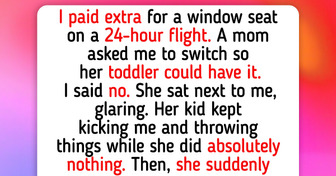
I Cut Off My Parents After They Demanded My Inheritance—and I Don’t Regret It
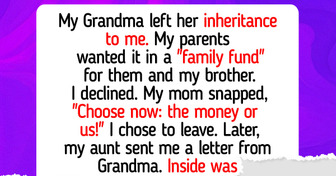
12 Moments That Show Romance Is Really About Small Acts of Kindness

15+ Stories That Prove Some House Guests Are Impossible to Forget

15 Times People Refused to Be Mean—And Kindness Proved More Powerful
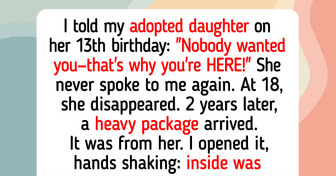
I Was Fired for My Age, Now HR Is Begging Me to Return
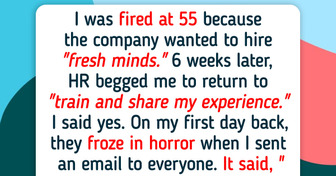
My Dad Refused to Come to My Wedding, but I Still Asked for the Gift

My Cousin Uninvited Me to Save Money—My Petty Revenge Was Absolutely Worth It

12 Moments That Teach Us to Stay Kind, Even When Life Becomes Heavy
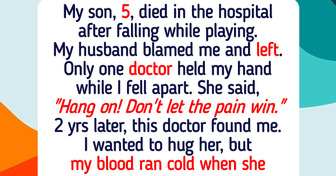
I Refuse to “Show Dedication” by Working an Unpaid Weekend
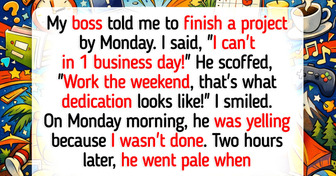
I Refuse to Adopt My Dying SIL’s Baby—Her Last Words Left Me Frozen
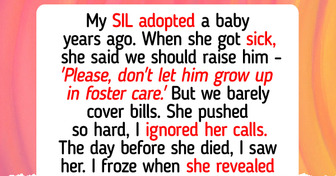
I Refuse to Help My Coworker Who Treats My Kindness Like an Obligation
